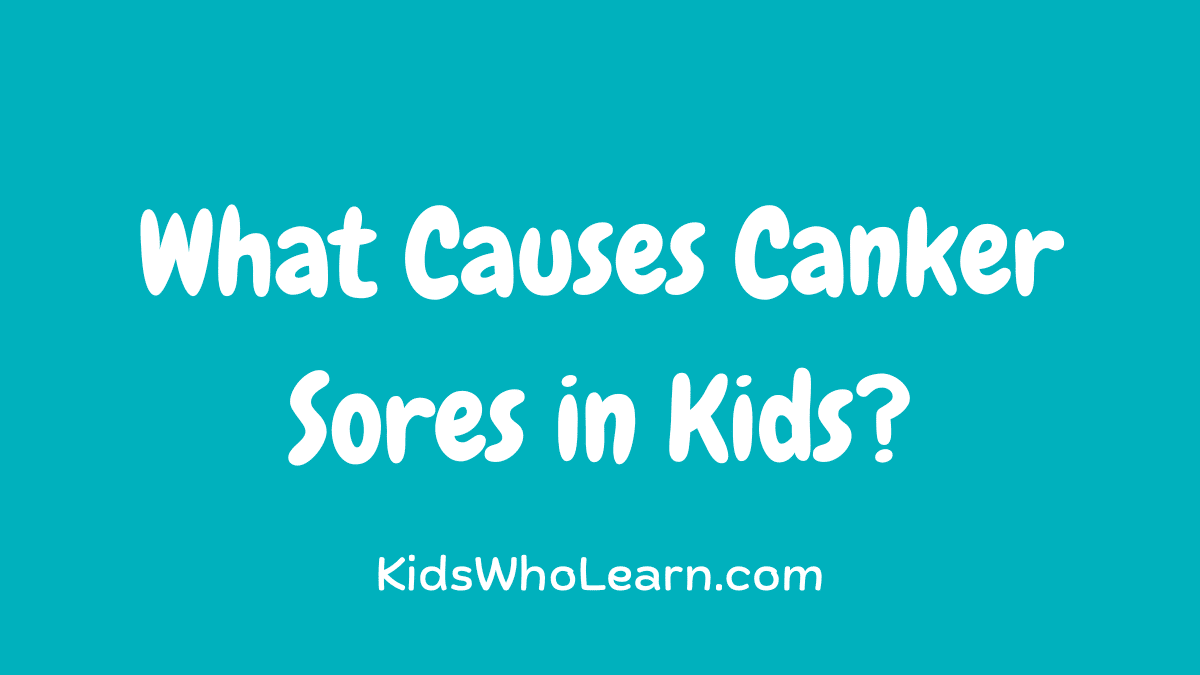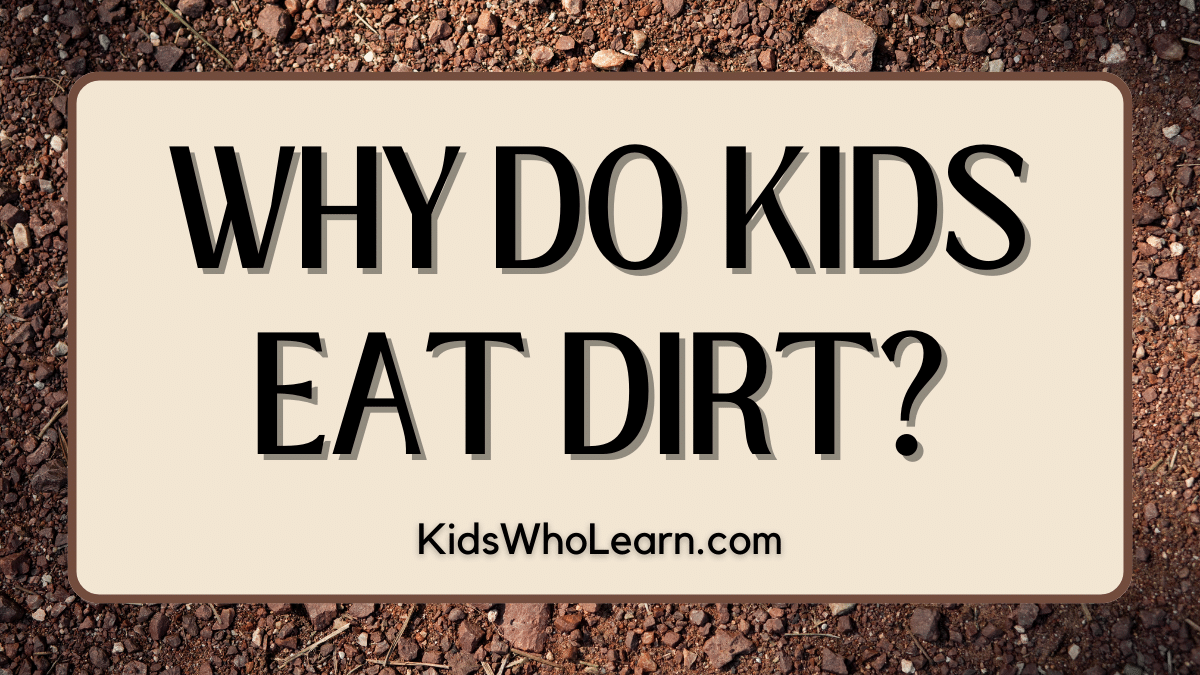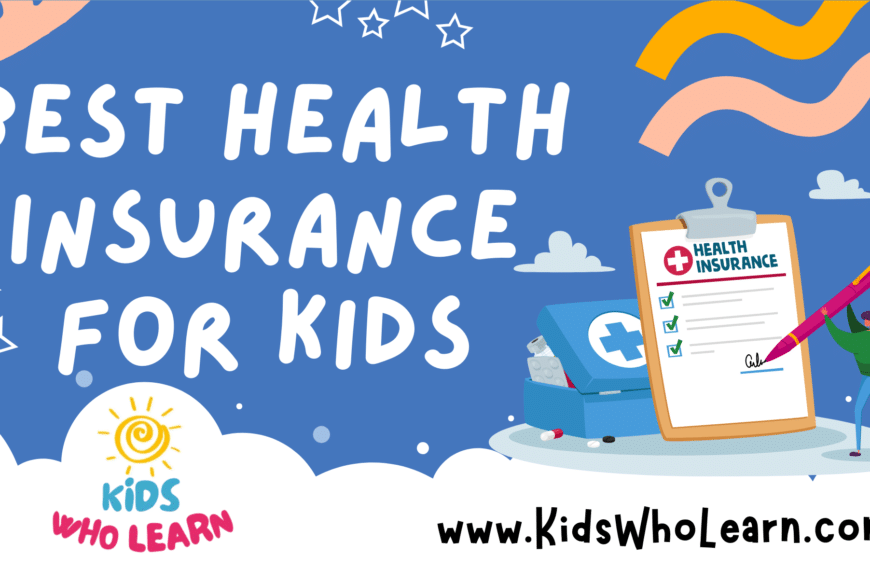If you’ve ever had a canker sore, you know how painful they can be. Unfortunately, kids can get them too. Canker sores are small, shallow ulcers that form in the mouth. They can be caused by a variety of factors, some of which are more common in children than adults.
Understanding what causes canker sores in kids can help parents and caregivers take steps to prevent them. While the exact cause of canker sores is unknown, there are several factors that can contribute to their development. These can include anything from injury to the mouth to certain foods or medications. By knowing what to look for, you can help your child avoid triggers and reduce their risk of developing canker sores.
Key Takeaways
- Canker sores are small, shallow ulcers that can form in the mouth.
- While the exact cause of canker sores is unknown, there are several factors that can contribute to their development.
- Understanding these causes can help parents and caregivers take steps to prevent canker sores in kids.
Understanding Canker Sores
Canker sores are a common problem that affects many kids. They are small, painful ulcers that appear inside the mouth, on the tongue, cheeks, gums, or lips. They can cause discomfort and make it difficult to eat or speak.
Canker sores are not contagious, and they are not caused by bacteria or viruses. Instead, they are usually triggered by various factors, such as:
- Injury to the mouth: biting, chewing, or scraping the inside of the mouth can cause canker sores to develop.
- Spicy or acidic foods: consuming foods that are too spicy or acidic can irritate the mouth and trigger canker sores.
- Nutritional deficiencies: a lack of certain vitamins and minerals, such as vitamin B12, iron, or folic acid, can increase the risk of canker sores.
- Hormonal changes: some kids may develop canker sores during puberty due to hormonal changes.
- Stress: emotional stress or anxiety can weaken the immune system and make kids more susceptible to canker sores.
Canker sores usually go away on their own within a week or two, but they can be treated with over-the-counter medications or prescription medications in severe cases. To prevent canker sores, kids should maintain good oral hygiene, avoid spicy or acidic foods, and manage stress levels.
Common Causes of Canker Sores in Kids
Canker sores are small, painful ulcers that can appear inside the mouth, on the tongue, or on the lips of children. These sores can be caused by a variety of factors. Here are some common causes of canker sores in kids:
1. Injury or Trauma
Sometimes, canker sores can be caused by injury or trauma to the mouth. This can happen if a child accidentally bites their lip or tongue, or if they brush their teeth too hard. In some cases, canker sores can also be caused by dental work, such as braces or dentures.
2. Food Sensitivities
Certain foods can trigger canker sores in some children. Foods that are acidic, spicy, or salty can irritate the mouth and cause sores to form. Some children may also be sensitive to certain food additives, such as preservatives or artificial colors.
3. Stress
Stress can weaken the immune system and make it more difficult for the body to fight off infections. In some cases, stress can also trigger canker sores in children. If your child is experiencing a lot of stress, it’s important to help them find ways to manage it, such as through exercise or relaxation techniques.
4. Hormonal Changes
Hormonal changes can also play a role in the development of canker sores in kids. This is particularly true for girls who are going through puberty or women who are experiencing their menstrual cycle. Hormonal changes can cause changes in the body’s immune system, which can make it more susceptible to infections.
5. Genetics
Finally, some children may be more prone to developing canker sores due to genetics. If you or your partner have a history of canker sores, your child may be more likely to develop them as well.
By understanding the common causes of canker sores in kids, you can help your child avoid triggers and manage their symptoms if they do develop a sore.
Symptoms of Canker Sores
Canker sores are small, painful ulcers that can appear inside the mouth, on the tongue, or on the lips. They are common in children and can cause discomfort and difficulty eating or drinking. Here are some symptoms to look out for if you suspect your child has a canker sore:
- Small, round or oval sores with a red border and a white or yellow center
- Pain or discomfort when eating, drinking, or speaking
- Swollen, tender lymph nodes in the neck
- A tingling or burning sensation in the mouth before the sore appears
Canker sores can occur in different parts of the mouth, including the tongue, gums, and cheeks. They can be single or multiple and can range in size from a few millimeters to several centimeters. In some cases, canker sores can be accompanied by fever or fatigue.
It’s important to note that canker sores are not contagious and are not caused by a virus or bacteria. They are often triggered by certain foods, stress, or injury to the mouth. If your child has frequent or severe canker sores, it’s a good idea to talk to your pediatrician or dentist to rule out any underlying health conditions.
Diagnosis of Canker Sores
If you suspect that your child has canker sores, you should take them to see a doctor or dentist for a proper diagnosis. A healthcare professional can examine the sores and determine if they are canker sores or if they are caused by something else.
During the examination, the healthcare professional will ask about your child’s medical history and any medications they are taking. They may also ask about your child’s oral hygiene habits, diet, and lifestyle.
In some cases, the healthcare professional may take a sample of the sore for further testing. This is called a biopsy. The sample is sent to a laboratory where it is examined under a microscope to determine the cause of the sore.
It is important to note that canker sores are usually not serious and will go away on their own within a week or two. However, if your child has frequent or severe canker sores, or if they have other symptoms such as fever, it is important to seek medical attention.
Treatment Options for Canker Sores
If your child is experiencing discomfort from a canker sore, there are several treatment options available to help alleviate symptoms and promote healing.
Over-the-Counter Medications
Many over-the-counter (OTC) medications are available to help relieve pain and speed up the healing process of canker sores. These medications come in the form of gels, creams, and liquids and can be applied directly to the sore. Some common OTC medications include:
- Benzocaine: A numbing agent that can help relieve pain
- Hydrogen peroxide: Can help reduce inflammation and promote healing
- Antimicrobial mouthwash: Can help prevent infection and promote healing
It is important to follow the instructions on the medication carefully and avoid using too much, as this can cause further irritation.
Home Remedies
Several home remedies can also be used to help relieve pain and promote healing of canker sores. These remedies include:
- Saltwater rinse: Mix a teaspoon of salt in a glass of warm water and swish around in the mouth for 30 seconds before spitting out. This can help reduce inflammation and promote healing.
- Baking soda paste: Mix baking soda with a small amount of water to create a paste. Apply the paste directly to the sore and leave on for a few minutes before rinsing off. This can help reduce pain and promote healing.
- Ice: Applying ice directly to the sore can help numb the area and reduce pain.
Prescription Medications
In severe cases, your child’s doctor may prescribe medication to help treat canker sores. These medications include:
- Corticosteroids: Can help reduce inflammation and promote healing
- Tetracycline: An antibiotic that can help prevent infection and promote healing
It is important to follow the instructions on prescription medication carefully and speak with your child’s doctor if you have any questions or concerns.
Overall, there are several treatment options available to help relieve pain and promote healing of canker sores in kids. By following the instructions carefully and speaking with your child’s doctor if necessary, you can help your child feel more comfortable and promote a faster healing process.
Prevention of Canker Sores
Preventing canker sores in kids can be challenging, but there are a few things you can do to help reduce the chances of your child developing them. Here are some tips to keep in mind:
Maintain Good Oral Hygiene
One of the best ways to prevent canker sores is to maintain good oral hygiene. Encourage your child to brush their teeth twice a day and floss regularly. This can help remove bacteria and food particles that can irritate the mouth and lead to canker sores.
Avoid Trigger Foods
Certain foods can trigger canker sores in some people. These include spicy and acidic foods, as well as foods that are rough or scratchy, such as popcorn. Avoiding these trigger foods can help reduce the risk of canker sores.
Manage Stress
Stress can weaken the immune system and make it more difficult for the body to fight off infections and heal sores. Encourage your child to practice stress-reducing activities, such as exercise, yoga, or meditation.
Protect the Mouth
Injuries to the mouth, such as biting the inside of the cheek or lip, can lead to canker sores. Encourage your child to be careful when eating and playing sports, and consider using a mouth guard to protect their teeth and mouth.
Check for Nutritional Deficiencies
Some nutritional deficiencies, such as a lack of vitamin B12 or iron, can increase the risk of canker sores. Talk to your child’s doctor about testing for nutritional deficiencies and consider adding supplements or changing their diet if needed.
By following these tips, you can help reduce the chances of your child developing canker sores and promote good oral health.
When to Seek Medical Help
If your child develops canker sores, there are a few signs that may indicate it’s time to seek medical help. While most canker sores will heal on their own within a week or two, some cases may require medical attention.
Here are some signs that you should take your child to see a doctor:
- Your child has an unusually large or painful canker sore.
- Your child has multiple canker sores that keep coming back.
- Your child’s canker sore is accompanied by a fever, rash, or other symptoms.
- Your child’s canker sore doesn’t heal after two weeks.
In some cases, canker sores may be a symptom of an underlying health condition, such as anemia, Crohn’s disease, or a weakened immune system. If your child’s canker sores are frequent or severe, your doctor may want to perform additional tests to rule out any underlying conditions.
It’s also important to seek medical help if your child is having difficulty eating or drinking due to the pain of their canker sore. In severe cases, your doctor may prescribe medication to help manage the pain and promote healing.
Remember, while canker sores can be uncomfortable, they are usually not a cause for concern. With proper care and treatment, your child’s canker sore should heal on its own within a week or two. However, if you notice any of the signs listed above, don’t hesitate to seek medical help.
Conclusion
In summary, canker sores in kids can be caused by a variety of factors. While they are not contagious, they can be painful and uncomfortable for your child. Here are some key takeaways to keep in mind:
- Canker sores can be caused by a variety of factors, including stress, injury, and certain foods.
- Maintaining good oral hygiene can help prevent canker sores from developing.
- If your child does develop a canker sore, there are several over-the-counter treatments available to help manage the pain and promote healing.
- If your child experiences frequent or severe canker sores, it may be worth talking to their healthcare provider to rule out any underlying health conditions.
Remember, while canker sores can be uncomfortable for your child, they are generally not a cause for concern. With proper care and treatment, your child can get relief from their symptoms and get back to feeling like themselves in no time.
Frequently Asked Questions
Are canker sores in children normal?
Yes, canker sores are a common occurrence in children. In fact, about 20% of children will experience a canker sore at some point. They are usually harmless and go away on their own within a week or two.
What foods cause canker sores in kids?
Spicy and acidic foods can sometimes trigger canker sores in kids. Additionally, foods that are high in sugar or artificial sweeteners can also cause them. It’s important to note that every child is different and what triggers canker sores in one child may not affect another.
How do you get rid of canker sores in kids?
Most canker sores will heal on their own within a week or two. However, there are some things you can do to help alleviate the pain and speed up the healing process. Rinsing with salt water or a baking soda solution can help reduce inflammation and promote healing. Over-the-counter topical treatments, such as benzocaine or lidocaine, can also help with pain relief.
What virus causes canker sores in kids?
Canker sores are not caused by a virus. They are small, shallow ulcers that develop on the inside of the mouth, on the tongue, or on the lips. The exact cause of canker sores is not known, but they are thought to be triggered by a variety of factors, including stress, injury, and certain foods.
What causes mouth ulcers in a child?
Mouth ulcers, including canker sores, can be caused by a variety of factors. In addition to stress, injury, and certain foods, mouth ulcers can also be caused by underlying health conditions, such as celiac disease or inflammatory bowel disease.
Mouth ulcer treatment for child
If your child develops a mouth ulcer, there are several things you can do to help alleviate the pain and promote healing. Encourage your child to rinse their mouth with salt water or a baking soda solution several times a day. Over-the-counter topical treatments, such as benzocaine or lidocaine, can also help with pain relief. If the ulcer is particularly large or painful, your child’s doctor may prescribe a steroid medication to help reduce inflammation.







